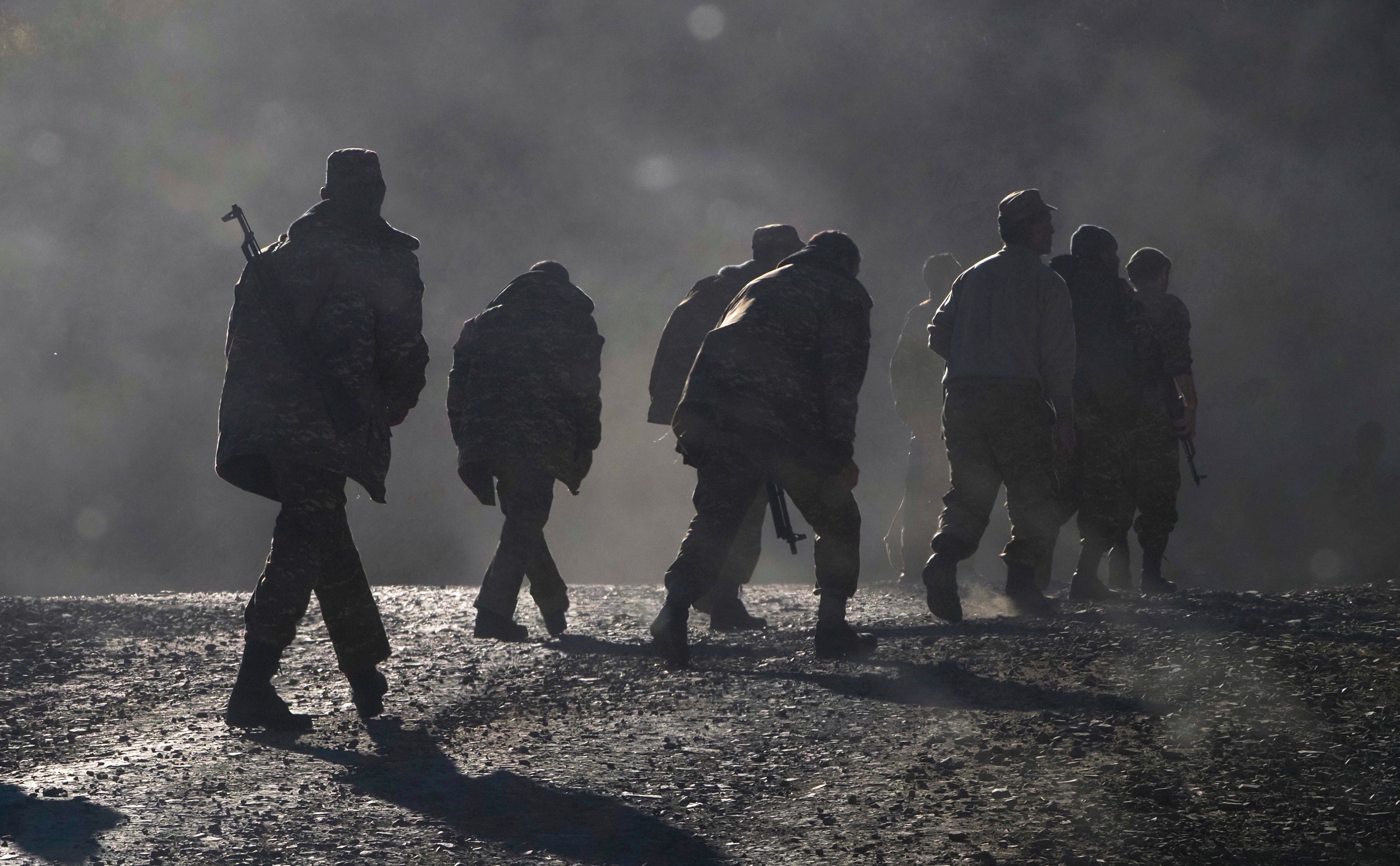Armenia takes Azerbaijan to UN court alleging discrimination
Armenia is taking its decades long territorial dispute with neighboring Azerbaijan — that erupted into armed conflict again last year — to the United Nations’ highest court

Your support helps us to tell the story
From reproductive rights to climate change to Big Tech, The Independent is on the ground when the story is developing. Whether it's investigating the financials of Elon Musk's pro-Trump PAC or producing our latest documentary, 'The A Word', which shines a light on the American women fighting for reproductive rights, we know how important it is to parse out the facts from the messaging.
At such a critical moment in US history, we need reporters on the ground. Your donation allows us to keep sending journalists to speak to both sides of the story.
The Independent is trusted by Americans across the entire political spectrum. And unlike many other quality news outlets, we choose not to lock Americans out of our reporting and analysis with paywalls. We believe quality journalism should be available to everyone, paid for by those who can afford it.
Your support makes all the difference.Armenia is taking its decades long territorial dispute with neighboring Azerbaijan — that erupted into armed conflict again last year — to the United Nations’ highest court.
Armenia filed a case at the International Court of Justice alleging breaches by Azerbaijan of an international convention that aims to eliminate racial discrimination, the court announced late Thursday.
Armenia alleges that as a result of what it calls a "State-sponsored policy of Armenian hatred, Armenians have been subjected to systemic discrimination, mass killings, torture and other abuse,” the court said.
The case centers of the Nagorno-Karabakh region of Azerbaijan that has been under the control of ethnic Armenian forces backed by the Armenian government for more than a quarter of a century.
During the Soviet era, the predominantly Armenian-populated region had an autonomous status within Azerbaijan. Long-simmering tensions between Christian Armenians and mostly Muslim Azeris boiled over as the Soviet Union collapsed. Conflict broke out in 1988 when the region tried to join Armenia, and escalated into war after the 1991 collapse of the USSR, leaving an estimated 30,000 dead and displacing about 1 million.
Fighting that erupted again a year ago killed hundreds, making it the biggest flare-up in the conflict since 1994.
Armenia alleges that Azerbaijani committed “grave violations of the racial discrimination convention" during last year's fighting.
The Armenian case says that even after a Russia-brokered ceasefire came into force on Nov. 10, ”Azerbaijan has continued to engage in the murder, torture and other abuse of Armenian prisoners of war, hostages and other detained persons,” according to the court.
Azerbaijan is expected to file a similar case against Armenia next week at the world court.
“In the coming days, we will hold #Armenia to account for breaches of the International Convention on the Elimination of All Forms of Racial Discrimination,” Azerbaijan's deputy Foreign Minister Elnur Mammadov said in a tweet. “30 years of human rights abuses against Azerbaijanis during occupation will not be tolerated.”
Leila Abdullaeva, head of the Azerbaijan foreign ministry’s press department, alleged Friday that, since the ceasefire, Armenia has prevented Azerbaijanis from returning to their homes through indiscriminate mining of the former occupied territories and refusing to provide mine maps to Azerbaijan.
In its case, Armenia also asks the court to urgently order so-called “provisional measures” to protect the country and Armenians “from further harm, and to prevent the aggravation or extension of this dispute” while the case is handled by the court.
The world court, formally known as the International Court of Justice, deals with dispute between nations. Cases often take years to be resolved.
____
Associated Press writer Aida Sultanova in Baku, Azerbaijan, contributed.